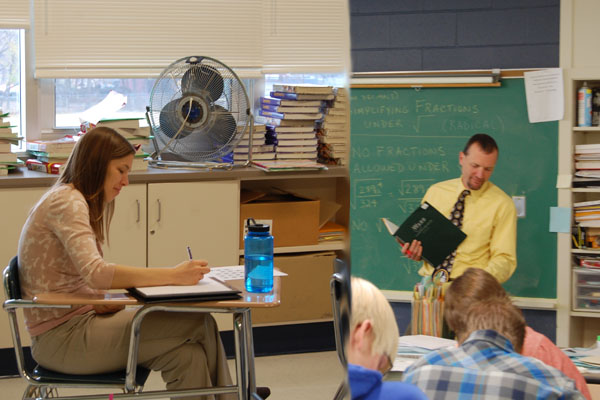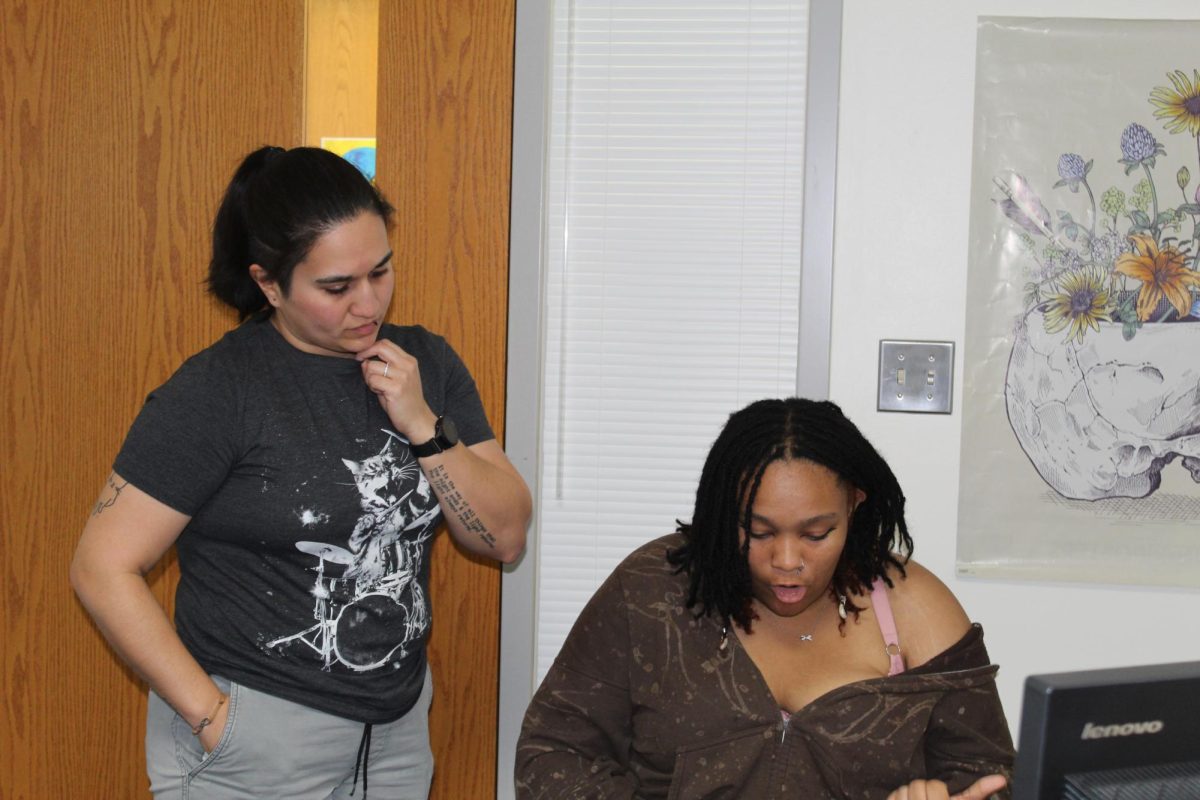Good teachers. Bad teachers. What really makes a teacher ‘good’ or ‘bad’?
That decision-making process is going to be changing for RB and schools around Illinois. There is a new evaluation model for determining the ‘effectiveness’ of teachers being integrated into RB teacher evaluations.
On April 13, 2011, Illinois Senator Kimberly Lightford proposed Senate Bill 7, also known as SB 7. The purpose of this bill is to improve the current way in which teachers are evaluated and the way in which teacher tenure functions. A teacher’s seniority, which previously had the dominant influence on teacher retention, is no longer the determining factor. Teacher performance has been moved to the forefront of the evaluation process instead, and it will be the deciding criteria by which teachers are rehired or let go.
The state of Illinois is adopting the Charlotte Danielson Framework for Teaching as their new model for evaluating teachers. The Danielson model is also the evaluation criteria RB will be implementing in the months ahead. This “Framework for Teaching” ranks teachers as unsatisfactory, basic, proficient or distinguished based on their performance in four of what the Danielson calls “Domains.” The four domains, which look at the whole range of teacher performance, include planning and preparation, classroom environment, classroom instruction, and a teacher’s professional responsibilities.
Each of these Domains focuses on a different aspect of teaching. For example, the Planning and Preparation Domain focuses on the teacher’s ability to design lessons and assignments appropriate for the students’ skills and abilities. In contrast, the Classroom Environment stresses the importance of “creating and environment of respect and rapport,” or in other words, establishing a safe and effective learning space where there is clear communication between both the students and instructor.
A common stereotype for those outside the teaching profession may be that teachers are like babysitters, paid to be with kids all day. The Danielson model realizes that this misperception is not valid. The fourth domain of the Danielson Framework looks at teachers’ professional responsibilities. They must reflect on the accuracy of their teaching, review the progress of their students, and build upon their lessons for the future.
So how will all of this actually impact instruction at RB?
First, in the past, when a school board needed to lay off teachers for financial reasons, as RB did last year, tenure laws and contract language stated that boards observe a “first-in, last-out” philosophy. Teachers would be laid off solely on the basis of experience and seniority. Under SB 7, teachers will now be evaluated and ranked into Danielson’s four categories and then layoff decisions will be made first by evaluation category and only then by seniority within that category.
SB 7 also changes who is doing the formal evaluations In the past, Department Chairs observed teachers in their designated departments to complete their evaluations. With the new evaluation process, teachers might be informally observed by a DC, but will only formally be observed by a school administrator.
Krissy Smetana, Assistant Principal of Curriculum and Instruction, said, “We were assigned departments based upon what we are certified to teach. For example, I am certified to teach Mathematics and Spanish, so I will observe teachers in the Mathematics, World Languages, and Science Departments. [Principal Pam] Bylsma has a background in Art and English, so she will observe in the Fine Arts, English, and Social Studies Departments.”
That evaluation, which includes but is not limited to, one class period observation, is what will determine whether a teacher is rated as being unsatisfactory, basic, proficient or distinguished. DC’s can informally observe and coach within their departments, but they will no longer complete written evaluations and their observations are prohibited, by SB 7, from having weight in the decision of how to rank a teacher.
Teachers are not the only ones within the building who are affected by this transition; guidance counselors and social workers are also a part of this shift. The new framework is, according to Smetana, “Fit for what [guidance counselors and social workers] do on a daily basis.”
Change is often unfamiliar and produces anxiety. The new evaluation model has teachers questioning whether or not their jobs are in jeopardy in the future.
Math Department Chair Doug Schultz, (who also serves as the RBEA President and sits on the committee dedicated to implementing SB7 at RB) said, “[The teachers], as of now, are frustrated because it’s the beginning process of change; they are anxious because [the evaluation system] is new.”
Schultz said, “[The transition] will take time. [The] purpose of the change is good, but it would’ve been more comfortable [for both the teachers and RB] if it came in stages.”
To ease the stress and angst amongst the staff, the administration began educating staff on the Danielson Framework at the District Institute Day on Friday, October 26th and plans to further inform them in the months ahead.














Louis • Nov 19, 2012 at 1:08 am
About time. This couldnt have come soon enough. Actually its a tad late but better late than never. If only this system had been in place last year maybe RB would still have teachers such as Gallagher instead of… Great article and I’m glad to see RB changing things up.
SPONSOR’S NOTE:
SB 7 represents a change in state law, not RBHS policy. -D. Mancoff
Carolyn • Nov 9, 2012 at 6:02 pm
Excellent, informative article! Well done. I fear that this is only the beginning of big changes for teachers.
Art perry • Nov 8, 2012 at 8:25 pm
Thank you for a very informative and well written article. Great job!